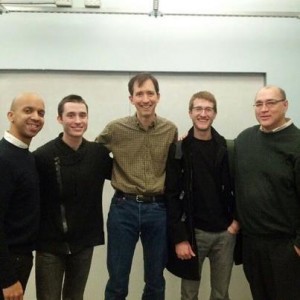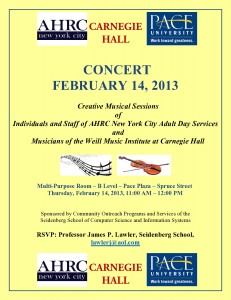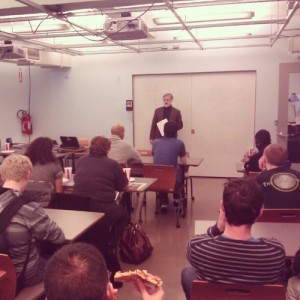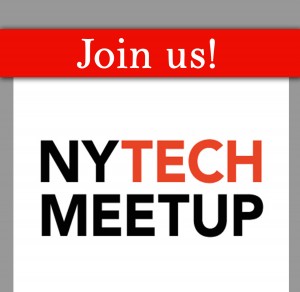Pace University’s Seidenberg School of Computer Science and Information Systems is excited to announce a Massive Open Online Course (MOOC) led by Dean Amar Gupta for the spring semester.
While the University has been making great strides into online education through services like iMentor this will be its first ever MOOC and is a bold step for both the University and the Seidenberg school. MOOCs have been pioneered by companies like Coursera and EdX and this will be Pace’s first contribution to the arena. The course is part of Pace’s efforts to use the most advanced technologies to bring their students the best educational experience possible.
The course will be made up of a four part lecture series covering the topics of “Knowledge Economy”, “International Management of Services”, “Entrepreneurship Innovation” and the “24-hour Knowledge Factory”. All of these topics are ones on which Dean Gupta has a range of insights and are sure to provide valuable information for all that participate.
The lectures begin March 6th in 163 William Street at 6 pm. They will be recorded and put on Udemy.com for everyone to access. Those interested in the course should contact kbrazaitis@pace.edu. Pace students may have the option of receiving credits for the course. Everyone interested in the 21st century global economy should tune into the lectures as they are sure to have a wealth of information that will be useful across all disciplines.





 Valentine’s Day is quickly approaching and you haven’t made plans. Sound familiar? No worries, this year Seidenberg College has you covered with a concert. Creative Musical Sessions along with the Individuals and Staff of AHRC New York City Adult Day Services and the musicians of the Weill Music Institute at Carnegie Hall will be stopping by Pace on February 14th to perform from 11:00 am to noon in the Multipurpose Room on the B-Level of One Pace Plaza. The performance will benefit the AHRC, which is dedicated to serving those with intellectual and developmental disabilities. The performers will include the professional musicians, AHRC staff who are musicians part-time and individuals served by the AHRC who were paired with musicians.
Valentine’s Day is quickly approaching and you haven’t made plans. Sound familiar? No worries, this year Seidenberg College has you covered with a concert. Creative Musical Sessions along with the Individuals and Staff of AHRC New York City Adult Day Services and the musicians of the Weill Music Institute at Carnegie Hall will be stopping by Pace on February 14th to perform from 11:00 am to noon in the Multipurpose Room on the B-Level of One Pace Plaza. The performance will benefit the AHRC, which is dedicated to serving those with intellectual and developmental disabilities. The performers will include the professional musicians, AHRC staff who are musicians part-time and individuals served by the AHRC who were paired with musicians.
